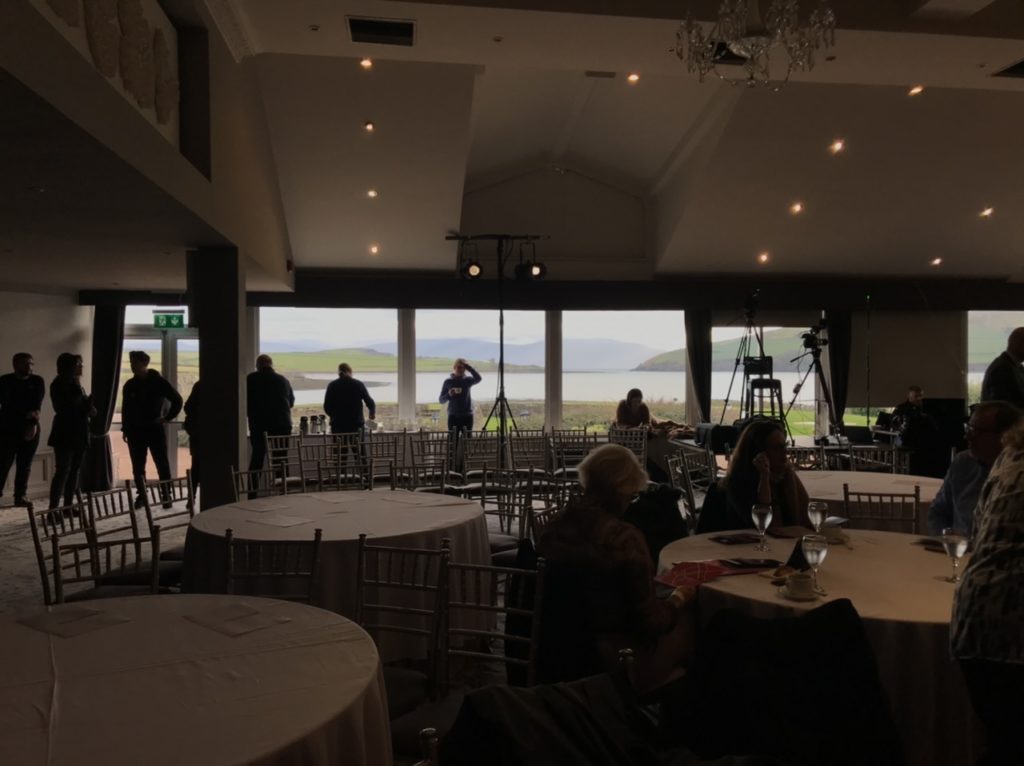I’m at Ireland’s Edge, consistently the most interesting event I go to every year. It’s held in Dingle, which is on the westernmost edge of Europe and a place I’ve loved ever since I was a student. And what conference Centre anywhere has a backdrop like the one shown in the pic?
Yesterday, one of the sessions was on “A New Era of Investigative Journalism: Political Polarisation and Surveillance Capitalism”. It was moderated by Muireann Kelliher, co-inventor of Ireland’s Edge, and had a terrific panel: my Observer colleague Carole Cadwalladr, Peter Geoghegan of openDemocracy and Donie O’Sullivan of CNN. There was a spirited discussion of the way in which journalistic exposés of the blatant flouting of electoral and other laws in the Brexit referendum and the 2016 US presidential election by political parties, foreign and domestic actors and social media companies have not resulted in any meaningful penalties for the wrongdoers. The audience came away having been stirred by the manifest injustices and institutional dysfunctionality described by the journalists, but also (I think) deeply pessimistic that anything will be done about the problematique (to use the French term for a real mess) portrayed in the discussion.
On reflection, it occurs to me that the fundamental problem underpinning all this is impunity — i.e. the discovery that there are agents in liberal democracies which are able to behave badly without having to worry about the consequences. We saw this with the banks in the 2008 crisis, and we’re seeing it now with political activists, foreign actors and tech companies. And the reason this is so poisonous is that impunity goes to the heart of the matter. Democracy depends on the rule of law (not, as the Chinese regime maintains, rule by law). Its fundamental requirement is that no one or no institution is above the law, and what we’re discovering now is that that no longer holds in many democracies — and most shockingly in two supposedly mature democracies: the UK and the US.
How did we get here? One of the reasons is that since the 1970s governments and ruling elites have drunk the neoliberal Kool Aid which privileges markets — and the corporations that dominate them. One of the reasons the 2008 banking crisis happened is that in preceding decades the regulations under which banks operated were loosened (using the hoary old “red tape” trope) to create a legal environment in which they were able to screw the world economy with impunity. And our failure to anticipate the growth of tech power led to a failure to create a regulatory environment which would punish monopolistic and irresponsible business models. And now we’re living with the consequences.

